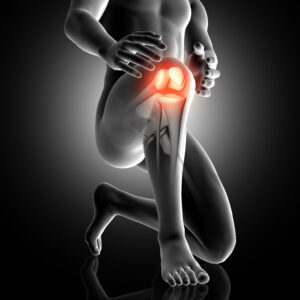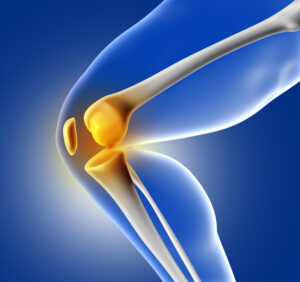Arthritis Care Specialists In Malvern, PA
Types of Arthritis We Treat

Inflammatory Arthritis – Inflammatory arthritis involves your entire body and systems, and may deteriorate or even fuse joints in your body at multiple locations. Affected joints become inflamed and painful and worsen over time. Multiple problems can occur throughout your body and affect your hair, skin, nails, and even organs, depending on the type of arthritis. A few types of inflammatory arthritis include Rheumatoid Arthritis, Psoriatic Arthritis, Sjogren’s, Lupus, and Ankylosing Spondylitis. Inflammatory Arthritis is caused by problems with your immune system, typically stemming from gut health, toxic exposures, infections, or genetic predispositions.
 Osteoarthritis – Non-inflammatory arthritis, or osteoarthritis, is sometimes called “aging arthritis” because it takes time to show up. Osteoarthritis is not a systemic condition like Inflammatory Arthritis, therefore it will only affect a problematic joint. Osteoarthritis is progressive, meaning once it starts, it is not likely to stop worsening. Also, Osteoarthritis is degenerative, meaning that it breaks down the normal and healthy tissue within and surrounding a joint. It may affect knees, toes, shoulders, hips, wrists, or anywhere along the spine. Joints become dry, cartilage thins, frays, and tears, bone spurs form, spinal discs flatten and degenerate, and over time, mobility can become greatly reduced. The final stage of Osteoarthritis is often called “bone on bone,” and this occurs when there is little to no cartilage left in the joint.
Osteoarthritis – Non-inflammatory arthritis, or osteoarthritis, is sometimes called “aging arthritis” because it takes time to show up. Osteoarthritis is not a systemic condition like Inflammatory Arthritis, therefore it will only affect a problematic joint. Osteoarthritis is progressive, meaning once it starts, it is not likely to stop worsening. Also, Osteoarthritis is degenerative, meaning that it breaks down the normal and healthy tissue within and surrounding a joint. It may affect knees, toes, shoulders, hips, wrists, or anywhere along the spine. Joints become dry, cartilage thins, frays, and tears, bone spurs form, spinal discs flatten and degenerate, and over time, mobility can become greatly reduced. The final stage of Osteoarthritis is often called “bone on bone,” and this occurs when there is little to no cartilage left in the joint.
Aligned Medical Group’s Comprehensive Arthritis Care Options
- A Holistic Approach: Aligned Medical Group uses a holistic approach to comprehensive arthritis care. Rather than focus on one specific painful joint, this approach evaluates the entire body and how it functions as a whole. We want to learn what caused the arthritis to begin with, so surrounding areas are examined for functional and structural problems. To achieve better outcomes for arthritis patients, our holistic approach may incorporate different disciplines, including chiropractic care, biologic treatments, therapeutic massage, functional medicine and nutrition, guided home exercise programs, and trigger point injections.
- Chiropractic Care: Chiropractic care is a great non-invasive arthritis care treatment option. In addition to improving joint mobility to speed up healing, chiropractic manipulation reduces inflammation and muscle tension, resulting in improved range of motion and better mobility for patients. A more mobile joint is better able to stay hydrated and sustain synovial fluid, the natural lubricant which acts like oil in an engine.
- Human Tissue Biologics: Injecting autologous biologics (blood or tissues derived from you) or allogeneic tissues (tissues donated by someone else) is a good option for arthritis care. These tissues work with your body’s innate ability to heal the degenerating joint.
- Massage Therapy: This is a relaxing and therapeutic arthritis care technique for patients with chronic pain. Not only is this treatment effective for many patients, it is safe and natural with no side effects or complications that could be associated with drugs or surgery. Massage reduces muscle tension, thereby reducing joint pressures and enhancing joint mobility and range of motion.
What Our Patients Are Saying About Our Comprehensive Arthritis Care
“I came to Aligned Medical Group in a post surgical splint looking for help to avoid my 9th osteoarthritis surgery to my shoulder in 2020. Their full body approach not only avoided shoulder surgery, their treatment encompassed my full body joint issues. Took a positive leap of faith by my desire to be healthy and healed. I have never felt better! Cannot promote this practice enough. My strides have been tremendous and cannot thank you enough!” – A.E.
Osteoarthritis and Normal Aging
Osteoarthritis is caused by problematic joint motion, and injury to a joint. Our joints rely on movement so the tissues can exchange oxygen and carbon dioxide, nutrition, and waste. With a lack of motion in a joint, or an inactive joint, the tissues begin to degenerate. If a joint is injured, whether it is a sudden injury like whiplash or sprain, or if it is cumulative microtrauma over time with sports, or occupational activities, for example, the injury may result in scar tissue which decreases the ability of the joint tissues to exchange nutrition. Other factors come into play which create excess pressure and stress on weight bearing joints, again limiting the exchange of nutrition such as excess body weight, or tight muscles surrounding a joint. Remember that movement is the key to a healthy life, and motion is lotion on your joints.
How Arthritis Treatment Can Repair Arthritis
There are varied opinions regarding the repair of Osteoarthritis. The general consensus is that once it starts, it progresses over time, but at Aligned Medical Group, we believe for some pro-active patients, the process can repair and improve greatly. Left unmanaged, arthritis will progress faster. With the use of human tissue products with arthritis care, the damage from arthritis can be repaired quickly. Biologic and tissue products do not treat arthritis directly, however are shown effective at repairing the damage from arthritis, which may stabilize the condition, avoid aggressive surgical procedures and give someone their life back.
If you are living with arthritis and want to learn more about an integrative approach to arthritis care to better control your arthritis symptoms, call Aligned Medical Group, at 610-644-3166 to schedule a consultation.
FAQs About Comprehensive Arthritis Care
Who is at Risk for Arthritis?
Arthritis can affect anyone, but certain factors may increase the risk:
- Age: The risk of many types of arthritis, including osteoarthritis and rheumatoid arthritis, increases with age.
- Gender: Some types of arthritis are more common in women, such as rheumatoid arthritis, while others, like gout, are more prevalent in men.
- Genetics: A family history of arthritis might predispose someone to developing it.
- Obesity: Being overweight or obese places extra stress on joints, especially on weight-bearing joints like knees and hips, increasing the risk of arthritis.
- Joint Injuries: Previous joint injuries or overuse of certain joints might contribute to the development of arthritis in those specific areas.
- Occupation: Certain jobs that involve repetitive movements or stress on particular joints may increase the risk of developing arthritis. Other jobs with static work station postures reduce joint motion and increase risk of arthritis.
- Smoking: Smoking has been linked to an increased risk of rheumatoid arthritis and osteoarthritis.
- Motion: Joints need to move to stay healthy. Sedentary lifestyle and joints that are tight and not stretched regularly, are more likely to develop osteoarthritis.
While these factors may heighten the risk, it’s important to note that arthritis is a complex condition, and various other factors can contribute to its development. See an arthritis care specialist for an evaluation if you have several of these risk factors.
What Are The Symptoms Of Arthritis?
The symptoms of arthritis can vary depending on the type, but common signs include:
- Joint Pain: Persistent discomfort or pain in one or more joints, often worsening with movement or at the end of the day.
- Stiffness: Joints might feel stiff, especially in the morning or after periods of inactivity, making movement challenging.
- Swelling: Inflammation around the joints causing swelling, tenderness, and sometimes warmth to the touch.
- Redness and Warmth: Some forms of arthritis, like rheumatoid arthritis or gout, can cause redness and warmth in the affected joints.
- Decreased Range of Motion: Difficulty moving the joint fully or a sense of limited flexibility.
- Fatigue: Feeling tired or having a lack of energy, often due to the body’s response to inflammation.
- Weakness and Muscle Wasting: Muscles surrounding the affected joint might weaken or shrink due to lack of use or inflammation.
- Deformities: In certain types of arthritis, joints can become misshapen or deformed over time.
It’s important to note that symptoms can fluctuate in severity and might come and go. Also, different types of arthritis can present with distinct symptoms, so it’s essential to consult an arthritis care specialist for an accurate diagnosis and appropriate management.
What Is Comprehensive Arthritis Care?
Comprehensive arthritis care involves a multidisciplinary approach to treating and managing arthritis and related conditions. It encompasses various medical specialties, therapies, and interventions tailored to meet the individual needs of patients with arthritis.
Who Can Benefit from Comprehensive Arthritis Care?
Comprehensive arthritis care is beneficial for individuals of all ages who are living with arthritis or experiencing symptoms such as joint pain, stiffness, swelling, and decreased mobility. It is especially helpful for those with chronic or complex forms of arthritis, such as osteoarthritis, psoriatic arthritis, and juvenile idiopathic arthritis.
What Services are Included in Comprehensive Arthritis Care?
Comprehensive arthritis care services may include:
- Thorough medical evaluations including physical, neurological and orthopedic examination, laboratory work up, food diary review, posture assessment and more
- Personalized treatment plans incorporating chiropractic care, therapeutic massage, functional nutrition, medication management, and at-home stretching or exercise.
- Ongoing monitoring and follow-up care to track progress and adjust treatment as needed.
- Patient education and support to enhance self-management skills and improve quality of life.
Why is it important to seek care from arthritis specialists?
Arthritis specialists have advanced training and expertise in treating arthritis symptoms and related autoimmune conditions. They stay up-to-date on the latest advancements in arthritis care and can provide comprehensive evaluations and personalized treatment plans to effectively manage arthritis symptoms and improve joint health.
Other Services from Aligned Medical Group:
- Human Cell and Tissue Biologics
- Pain Management
- Medical Weight Loss
- Chiropractic Care
- Non-surgical Treatment
- Pinched Nerve Treatment
- Therapeutic Massage
- Back & Spine Specialists
Read Our Featured Articles
Why Your Body Hurts More After 40 and What to Do About It
The transition into the middle decades of life often correlates with a noticeable shift in the body's response to everyday mechanical stress. Activities that were once routine, such as postural maintenance during sleep, recreational jogging, or lifting moderate loads,...
How to Get Back Pain Relief Without Surgery or Pain Medication
Chronic back pain impacts millions of people every day. Many individuals turn to pain medications or invasive surgery, but these options often carry significant risks and side effects that many people would like to avoid. Advanced chiropractic and holistic treatments...
Waking Up with Back Pain? Here’s What Your Body’s Trying to Tell You
Morning back pain isn’t just the usual stiffness. It can reflect deeper spinal issues, including spinal disc stress. During the day, spinal discs gradually lose moisture under the pressure of gravity and movement. With the sufficient hydration before going to bed, the...
Office Hours
- Monday: 8 AM–7 PM
- Tuesday: 8 AM–3 PM
- Wednesday: 8 AM–6 PM
- Thursday: 12–7 PM
- Friday: 8 AM–3 PM
- Saturday: Closed
- Sunday: Closed
*Call if you would like a time outside our normal hours, and we'll do our best to accommodate you*



